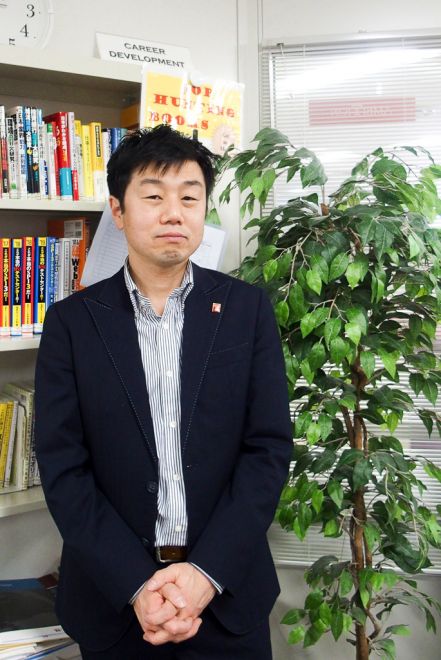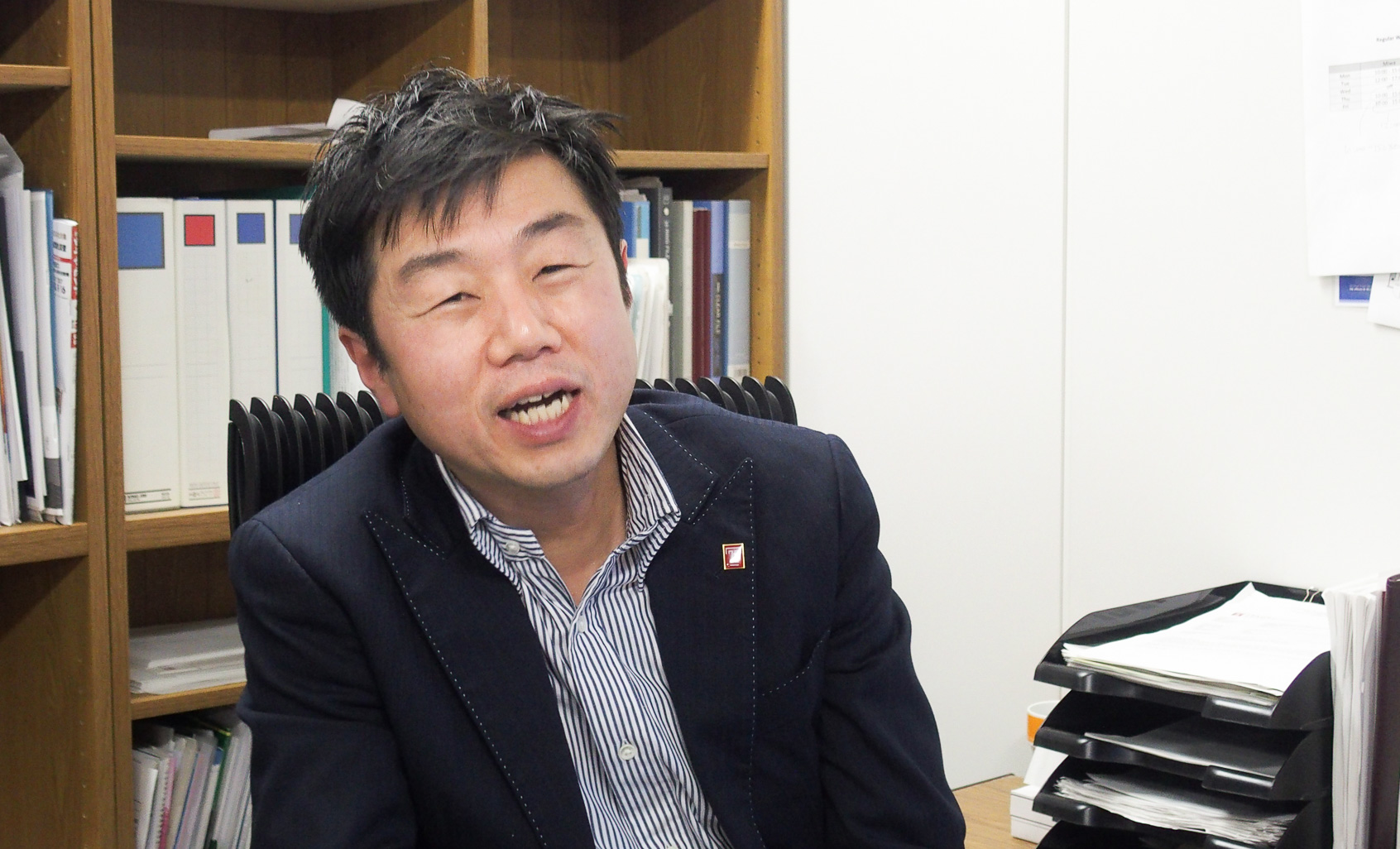TUJ students have various backgrounds, are different ages, and are from different countries — approximately 60 countries around the world at TUJ. More than 90 percent of the students get job offers upon their graduation. The TUJ Career Development Office supports each student in finding their ideal job. Student writer Sayaka Sue interviewed Kentaro Sawa, the director of the Career Development Office.
Q: Do TUJ students do job hunting as Japanese university students do even though TUJ students graduate at different times (May, August or December) from Japanese university students (April)?
First of all, job hunting is different depending on the country or area in which a student wants to work. 60 percent of TUJ students are foreigners. If a student wants to work in Japan, he or she starts job hunting while still studying at TUJ. The academic calendar and semesters are different from those of Japanese universities, so it is essential to do time management according to the Japanese calendar and job hunting schedule. Therefore, to students I always emphasize the importance of schedule management and prioritization even in daily life. I advise them not to take heavy class loads during their job hunting period so their schedule will be flexible. I sometimes make a schedule planner with students for their very important job hunting season. Also, I make sure that they do not apply to too many corporations. Rather than adding companies to their list, they should spend more time on finding a career path that suits them and on doing internships that get you to closer to the job they want.
Q: What kind of career supports can TUJ students receive?
There are mainly three types of support students receive as they think about their career, prepare for selection process, and apply for jobs while studying at TUJ.
1. Providing job information and opportunities
We hold career fairs, career seminars and workshops, networking events with alumni, and “Japanese Language Bootcamp” (Japanese interview skills training program). A job hunting guidebook and job postings for jobs in Japan and the U.S. are also available.
2. Individual counseling
Individual support for each student’s different needs is also provided. TUJ students have different backgrounds, so of course their strengths and career plans vary widely. Individual support is therefore essential.
3. Internship
We strongly encourage students to get out of their comfort zone and get work experience that will help them get an ideal job. Internships prepare students in these ways:
- Students can practice using what they learn in classes.
- Students have opportunities to think seriously about their future career.
- Students can learn business basics.
- Students can develop responsibility by working on real projects.
- Students can develop skills that will help them in the future.
- Students can begin developing a professional network.
Q: How is your career support different from that at Japanese universities’?
There are two points. One is that we focus on individual support, and the other is that we provide credit-bearing long-term internship program.
Q: What particular advantages do TUJ students have in job hunting?
With TUJ’s diverse student body, students constantly encounter various values and points of view. “They try to understand others, and help others understand them by explaining social norms of where they come from. And sometimes in their coursework they do group projects — with members from various backgrounds. Students need to understand various viewpoints every day in classes. So, I believe they will exercise their ability to function in various business settings in their careers as well.
Q: You went to graduate school in the U.S. after graduating from a Japanese university. Could you share your experience as a student?
When I went to the U.S. for a master’s degree, I was also in a rock band. It was very difficult trying to balance my music and my studies. I barely had time to sleep. But I still had a blast studying and doing music performances. These experiences helped make me who I am. Probably because of that, I get excited when I see students doing their best while studying, working a part-time job, doing an internship, and other different challenges. I enjoy my work now, but sometimes I wonder what my life would have been like if I had become a professional musician. There is nothing better than doing what you like as your job. Therefore, I would like TUJ students to start thinking of jobs based on what they like.
Q: Last question, what is your motivation for providing career support?
I always hope that students will think “I am having a great career start!” one or two years after they graduate from TUJ.

Student Writer’s EYE
Having career advisers and the director is very reassuring for students. They listen to our concerns about job hunting and internships, and give each of us specific advice. Career support that focuses on individual counseling is TUJ’s specialty, and they support us well.
By Sayaka Sue
Sayaka is a junior international affairs and political science double-major at TUJ. She writes for TUJ and online news media. She likes playing the piano, traveling and looking at the starry sky.

